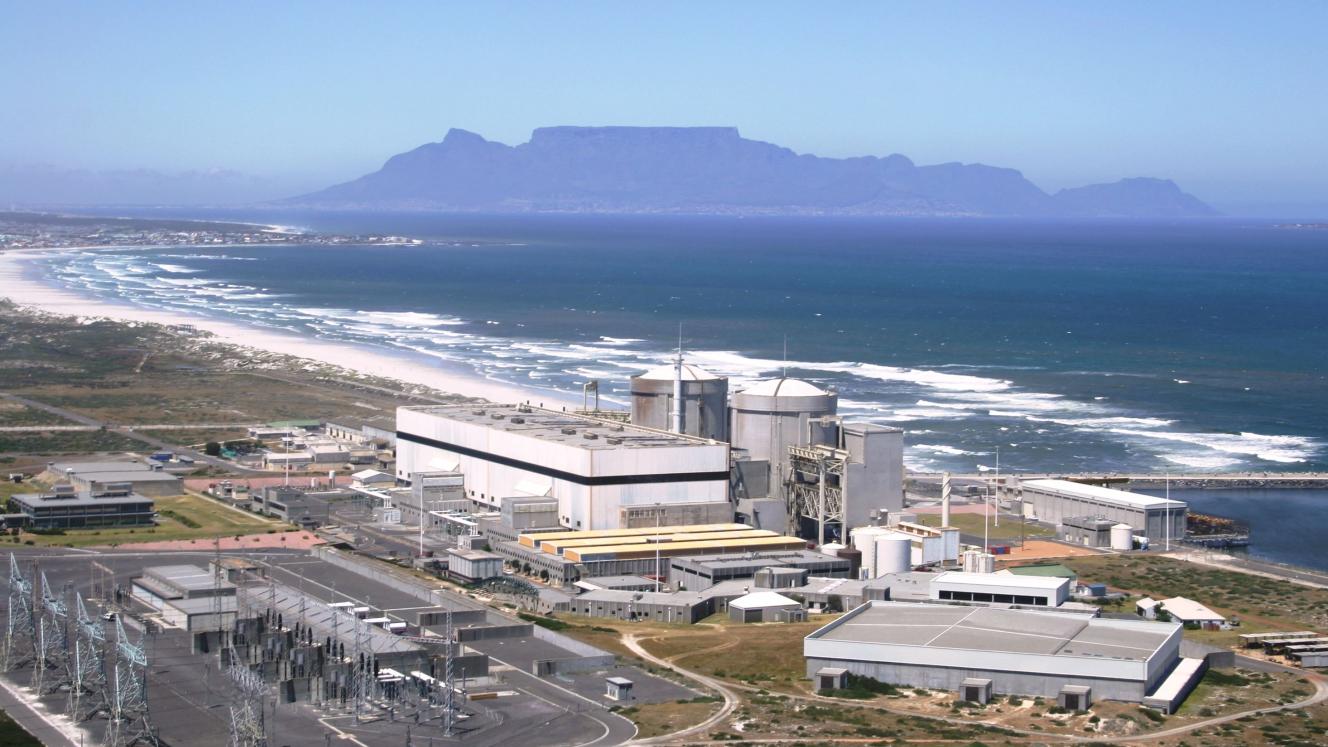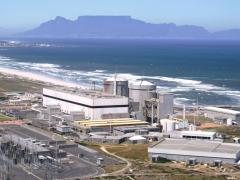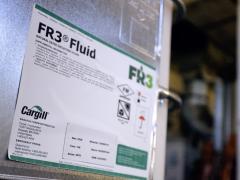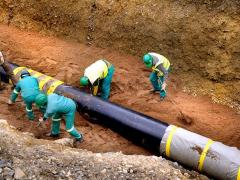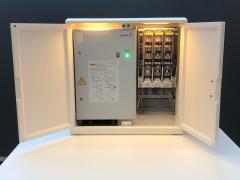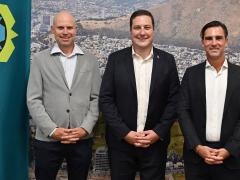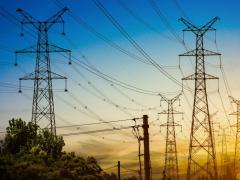Information from Koeberg Alert Alliance
After 17h00 on Thursday 1 April, the eve of the Easter weekend, Eskom’s response to the Nuclear-1 Environmental Authorisation (EA) appeal was released. This response marks the last step before Environment Minister Barbara Creecy makes a final decision on granting Eskom permission to build a new nuclear plant at the Koeberg site, 27 km north of the city of Cape Town.
According to civil organisations, the response document contains misinformation and worryingly shows Eskom pushing for a new nuclear build, overriding the country’s energy plan, the Integrated Resource Plan of 2019 (IRP 2019).
Background to the appeal
In 2007 Eskom planned to build three large nuclear plants in South Africa for which an Environmental Impact Assessment process was required by law. Eskom began the process, and the first Environmental Impact Report (EIR) was completed by 2010 and submitted to the Department of Environmental Affairs (DEA). Heavy criticism of this EIR resulted in three revisions in 2011, 2015 and 2016.
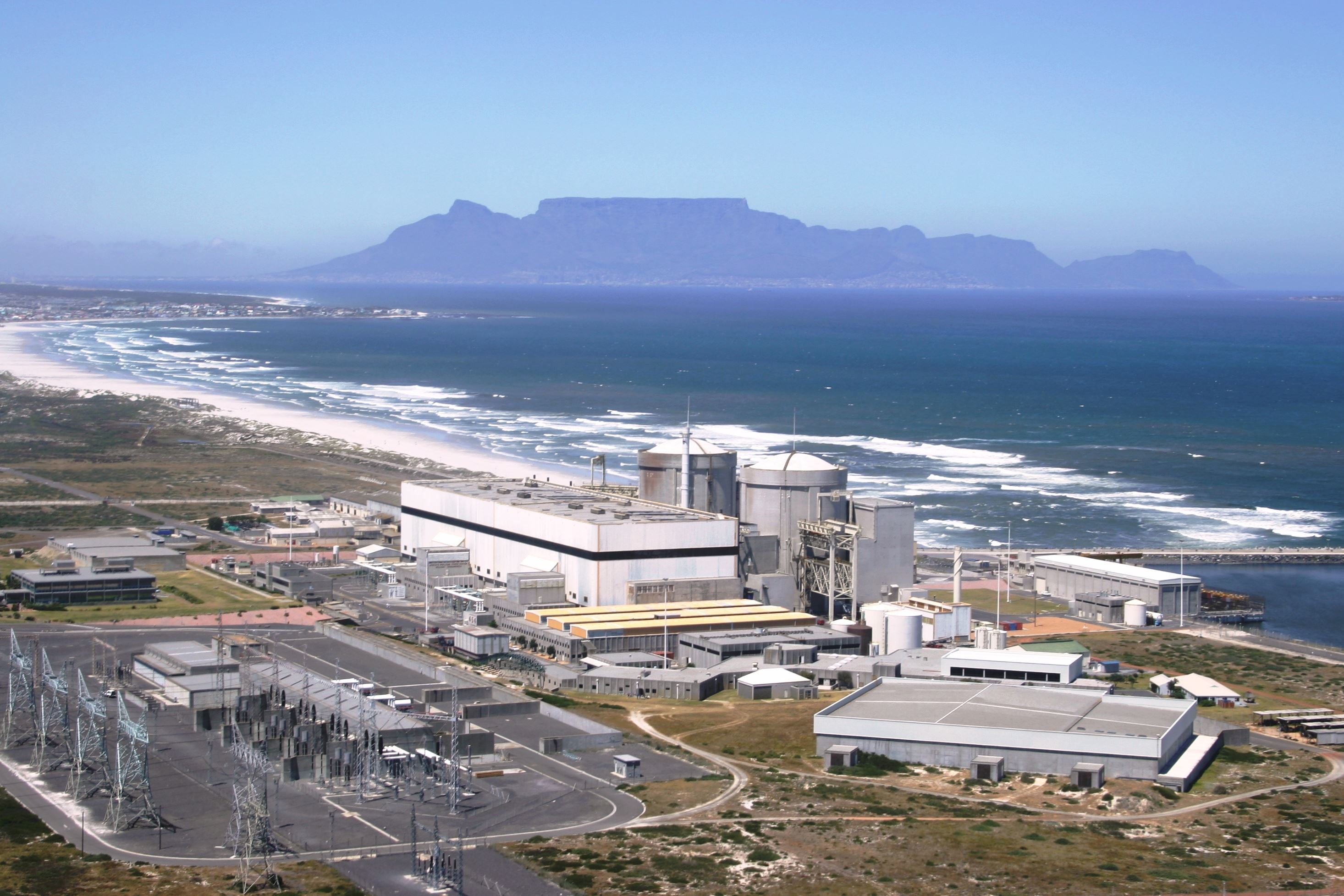
In 2017 the DEA Minister granted an Environmental Authorisation for the project prompting many organisations and individuals to appeal the decision by the deadline in March 2018. Then in July 2020, after a two-year pause, the DEA issued an invitation for supplementary submissions because the “2010 IRP has since been replaced by the Integrated Resource Plan 2019”. These submissions were given to Eskom which then released its response via the DEA on 1 April 2021, just after the start of the Easter weekend.
What did Eskom say?
Eskom’s nineteen-page response makes various statements which have drawn sharp criticism from activists and experts. Eskom claims that the factors influencing a pending decision about the environmental authorisation for a new nuclear plant should “not extend to completely new circumstances and facts that arose subsequent to the original decision,” [Section 2.7.5]
The response refers four times to previous submissions by the Koeberg Alert Alliance (KAA). According to the organisation’s spokesperson, Peter Becker, “Eskom’s response contains a mixture of untruths and stupidity.”
“Eskom’s lawyers are asking that we step into a time machine, go back four years, assume nothing will change in the intervening time and make a decision based only on information available in 2017. From a commonsense point of view, this is just monumental stupidity,” says Becker, “like planning a 2020 holiday to Europe before the pandemic and then refusing to take any ‘new circumstances and facts’ into account because they were not relevant at the time of making the plan.”
Eskom believes that considering new facts results in policy paralysis
Eskom further states that if new facts could be taken into account when making decisions it “would lead to an absurd result where the goal post would continuously shift” and “would result in policy paralysis” [Section 2.7.6]. Eskom concluded that on these grounds all the submissions made in 2020 should be ignored.
"Policy is dynamic,” says environmental sociologist and long-standing observer of the nuclear industry, Dr David Fig. “Since 2010 the policy landscape has altered significantly, and Eskom cannot sensibly argue that energy policy froze in 2010. Due to changes in the economy, court judgments and other factors, the context has changed significantly, and we now understand better the negative implications of the nuclear path."
Becker agrees: “It seems more ‘absurd’ to ignore new facts which are relevant to a decision. We are not talking about overnight changes. The report was submitted four years ago and some of the studies last updated ten years ago. It is not unreasonable to think some things might have changed.”
Untruths?
When asked for an example of what was untrue in the Eskom response, Becker highlighted the following: Eskom’s response stated “the Supplementary Appeals raise objections relating to the IRP 2019, which Eskom has not yet had an opportunity to comment on” [Section 2.3.7]. Eskom not only participated in the process of creating the IRP 2019 and had extensive opportunity to comment during that process, but also since the final version was released to the public over a year ago.
Eskom claims that the IRP 2019 states cabinet says nuclear is affordable
Eskom claims that the release of the IRP 2019 indicates that “the Cabinet clearly believed that a nuclear programme could be implemented in a flexible and cost-effective manner. There is no indication that the proposed project will be inflexible or unaffordable.” [Section 3.2.1 4.]
The Eskom response further claims: “The country’s policymakers have taken a decision to go ahead with nuclear, as part of South Africa’s energy mix. It is not for Eskom or the DEFF to question the policymakers’ decision.”
Richard Halsey, a researcher at Project 90 by 2030, believes there is no evidence to back up the need for a new nuclear plant. “In fact, all objective energy modelling points in the opposite direction, indicating that new nuclear is not an optimal or least-cost option for South Africa.
“If there is no rational need or desirability for nuclear, which is part of the EIA process, then clearly the Environmental Authorisation should not be granted,” says Halsey.
Eskom seems determined to build a new nuclear plant before 2030
Eskom further states: “The IRP 2019 recognises additional nuclear capacity of 2500 MW contributing to the South African energy mix. The country’s policymakers have taken a decision to go ahead with nuclear, as part of South Africa’s energy mix. Preparations for the commencement of the project, including construction, will commence prior to 2030.” [Section 3.3.1 1.]
According to Decision 8 in the IRP 2019: “Commence preparations for a nuclear build programme to the extent of 2500 MW at a pace and scale that the country can afford because it is a no-regret option in the long term.”
“The IRP 2019 policy Decision 8 does not say that the procurement of 2500 MW new nuclear should commence, but rather that preparations should commence at a "pace and scale the country can afford" says Southern African Faith Communities' Environment Institute (SAFCEI), Executive Director, Francesca de Gasparis.
“This policy adjustment is not based on 'least cost' options. Furthermore, nuclear has not been demonstrated to be affordable but rather as the costliest energy option, with costs likely to increase due to construction delays and costs of finance. This is not in the best interests of South Africans for whom the energy system should be accessible and affordable,” says De Gasparis.
“Commencing preparations as the IRP 2019 calls for is not the same as to “go ahead” which implies a commitment,” says Becker. “It is not clear how Eskom could justify categorising ‘construction’ as part of ‘preparations’ for commencement of the project.”
Eskom claims nuclear is zero carbon
Eskom also further claims: “"Nuclear energy does not emit greenhouse gases. Consequently, nuclear could play in an important role in South Africa’s energy transition to a low-carbon economy."” [Section 3.3.1 4.]
“Nuclear energy is not the answer to climate change as it is completely carbon intensive,” says Earthlife Africa’s Programs Officer, Ulrich Steenkamp.
“The whole fuel cycle of nuclear power, from mining uranium to the decommissioning of the power station, releases three to four times more carbon dioxide per unit of energy produced than renewable energy. Add to that the fact that nuclear energy is, on average, between two and four times more expensive than electricity from fossil fuels, plus the social and environmental costs associated with it – nuclear cannot be seen as a transitional energy for South Africa,” says Steenkamp.”
Eskom rejects idea that 2016 EIA is outdated despite based on faulty methodology and a 1976 study
In response to allegations that the studies needed updating “Eskom rejects that the information contained in the EIA Report is outdated.” [Section 3.3.1 1.]
Becker refutes this claim as well, pointing to the Seismic Risk Assessment which deals with the likelihood and magnitude of earthquakes at the Koeberg site. “The study was last significantly updated in 2011 and used a methodology now known to be based on assumptions that conflict with earthquake physics,” Becker says.
The study used Probabilistic Seismic Hazard Analysis (PSHA) methodology which was known from 2014 to be faulty. This has since been replaced with Senior Seismic Hazard Analysis Committee (SSHAC) methodology. Eskom is aware of this and has completed a SSHAC study for the Thyspunt site in the Eastern Cape which was their preferred site at the time. However, the preferred site was later changed to be at Koeberg and no SSHAC study has been done at the Koeberg site.
Eskom dodges around this issue by writing: “The Seismic Risk Assessment that was submitted as part of the EIA Report remains relevant.” “While this is cleverly worded, it simply ignores the question of methodology used,” says Becker. “It also ignores the fact that the original seismic study was done by Dames and Moore in 1976, and all later studies are based on that.”
Timing of response release “suspicious”
Asked about the timing of the release of the response, Becker said, “We received the email at 17h38 on Thursday evening which might be coincidental but is a bit suspicious as it is common practice to release before a holiday so that the story is lost.”
Lobby group pushing for nuclear power
Modelling by the Council for Scientific and Industrial Research (CSIR) and other independent groups show that new nuclear power has no place in a least cost scenario. It would need to be paid for by a sharp increase in tariffs.
“There is a lobby group within Eskom desperately trying to push this nuclear project forward by using vague language and outright falsehoods to obfuscate the issues,” says Becker.
“The entire EIA depended on the need and desirability of the project as outlined in the IRP 2010. This has changed in the IRP 2019, and it is ridiculous that Eskom are trying to convince us that a decision should be made based on an eleven-year-old plan,” concludes Becker.
Contact Peter Becker, Koeberg Alert Alliance, Tel 083 444-2083, peter@koebergalert.org
